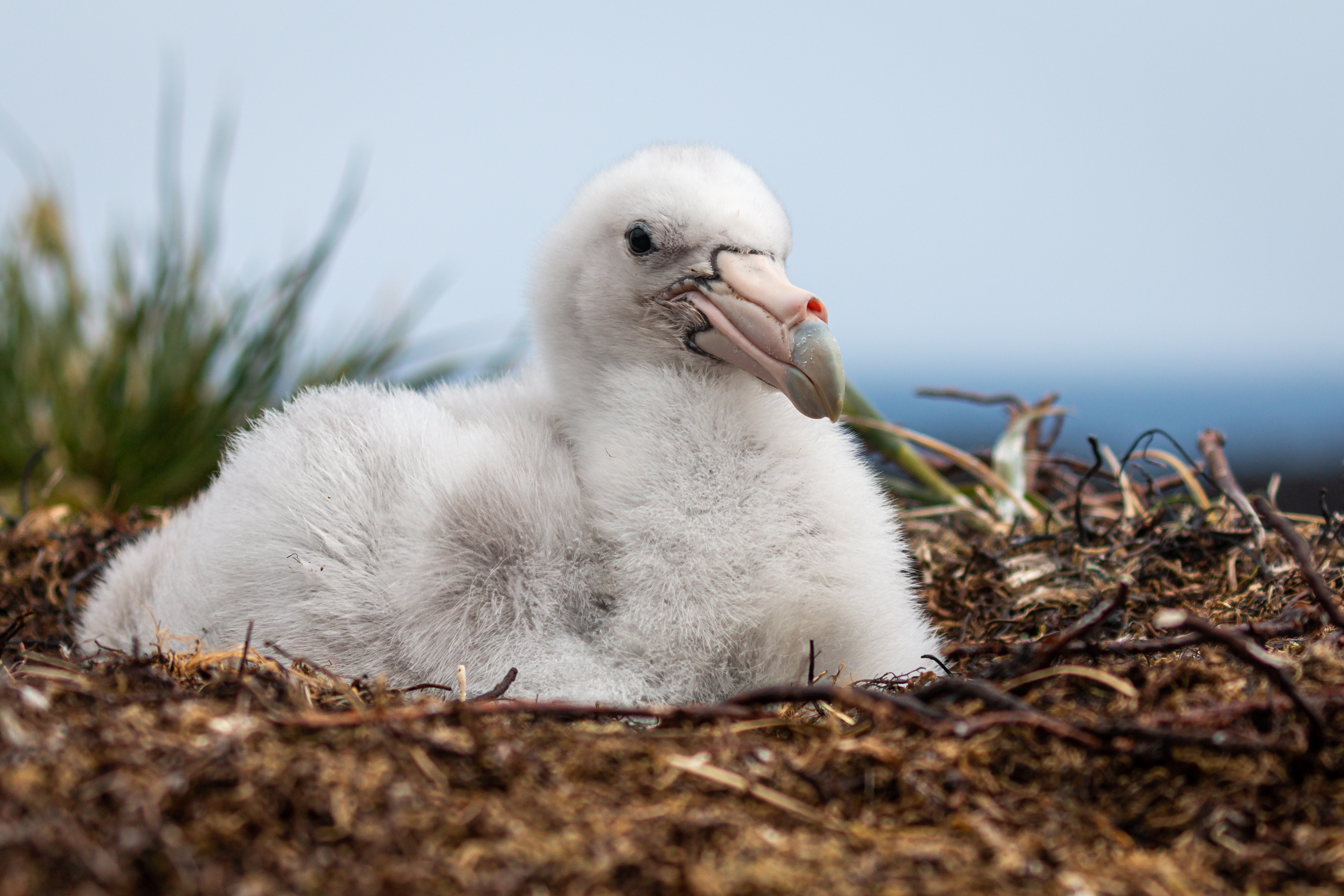
Southern Giant Petrel chick on Marion Island; photograph by John Dickens
Marcela Uhart (Latin America Program, Karen C. Drayer Wildlife Health Center, School of Veterinary Medicine, University of California, Davis, USA), Ralph Vanstreels and Patricia Serafini have produced a report in the ACAP Conservation Guideline series that discusses how best to work with albatrosses and petrels in the face of avian Influenza, giving specific recommendations that include best practices for conducting fieldwork in seabird colonies.
A summary of the report follows in English. The summary and full text are also available in French and Spanish on the ACAP website.
“Although most avian influenza infections are not pathogenic to seabirds, the current outbreak of high-pathogenicity H5N1 avian influenza (HPAI) has raised concern due to its unusual impact on wild birds. Although to date there are no reports of mortality events of Procellariiformes attributable to HPAI, the rapid spread of the currently prevalent H5N1 strains in the northern hemisphere and their unprecedented impacts on seabird populations raise concerns about potential risks for ACAP-listed species. The 2022/2023 austral summer may present the greatest potential for HPAI outbreaks among procellariiform populations, when most of these birds will congregate to breed at colonies in the southern hemisphere. Furthermore, all sites where ACAP-listed species congregate may be at risk of exposure via migratory birds or accidental introduction by human activities (e.g., banders, researchers and tourism) and should thus be in a state of alertness.”
Reference
Uhart, M., Vanstreels, R.E.T. & Serafini, P. 2022. Guidelines for working with albatrosses and petrels during the on-going high-pathogenicity H5N1 avian Influenza outbreak. ACAP Conservation Guideline. 4 pp.
John Cooper, ACAP Information Officer, 26 July 2022

 English
English  Français
Français  Español
Español